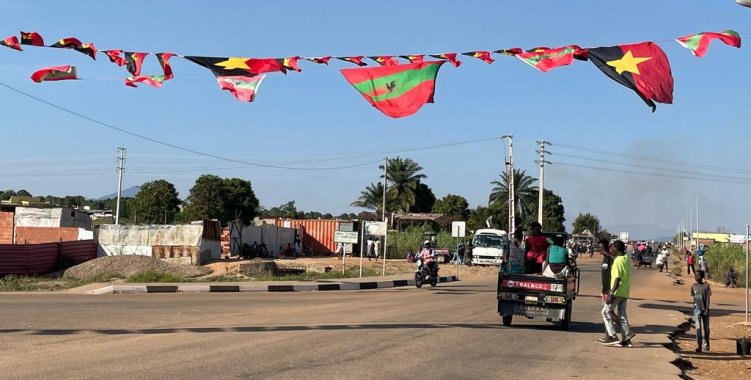It is already this Saturday that the two largest Angolan parties, one, governing Angola uninterruptedly for almost 48 years, the other in search of alternation in 2022, will seek to convince the electorate that they are the best choice for the vote of Angolans on the 24th of August.
The opening of the political campaign of the Popular Movement for the Liberation of Angola (MPLA) will take place in Camama, in Luanda, at 10:00 am, where a rally was scheduled for the 9th of July, an act that was canceled due to the national mourning declared due to to the death of former president José Eduardo dos Santos.
Number 1 on the list of "camaradas", João Lourenço, also President of the Republic, is running for a second term, after being elected on 23 August 2017, succeeding José Eduardo dos Santos, who presided over the fate of Angola during 38 years.
On the other side, in the coastal city of Benguela, in the south of the country, will be the leader of the "maninhos", Adalberto da Costa Júnior, who will lead a "victory march" to the location of the rally (Aeroporto 17 de Setembro) after for the National Union for the Total Independence of Angola (UNITA) to present its electoral manifesto, under the motto "2022 - Year of alternation of power for inclusive and participatory governance".
Members of other parties and movements, as well as civil society, compete on UNITA lists, including former party leader Abel Chuvukuvuku, who currently heads the PRA-JÁ political project, and Justino Pinto de Andrade, who suspended militancy in the Democratic Bloc.
The two political acts mark the beginning of the electoral campaign for the general elections on 24 August, in which Angolans will choose a new president and deputies to the National Assembly, in which seven parties and a coalition are running.
More than 14 million Angolans are eligible to vote in these elections, including, for the first time, 22,000 citizens residing abroad.
The numbers have raised doubts and complaints in recent days after several people noted the presence of deceased people among the voters, which the Government devalued, by the voice of the director of the official electoral register, Fernando Paixão, who blamed the family for not declare the deaths.







